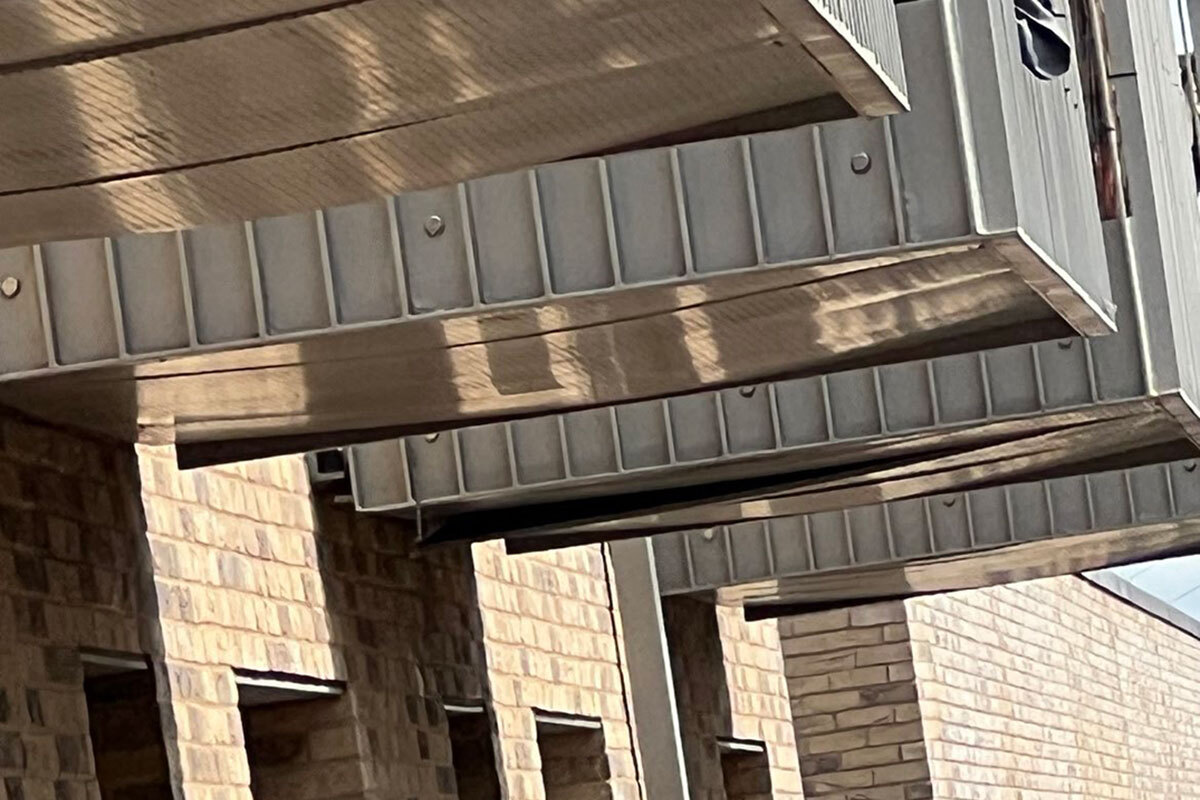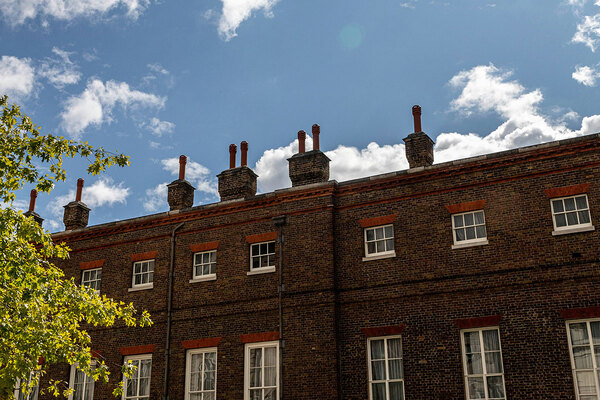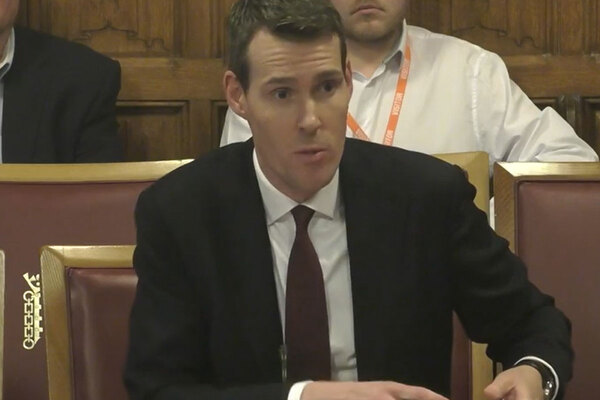You are viewing 1 of your 1 free articles
The Week in Housing: return of the minister
The Week in Housing is our weekly newsletter, rounding up the most important headlines for housing professionals. Sign up below to get it direct to your inbox every Friday
Good afternoon.
In a galaxy not that far away, Lee Rowley took on the role as housing minister for the first time last year. He lasted just 49 days. Little did he know he would return this week as the Renters’ Reform Bill had its first evidence session.
At the Public Bill Committee meeting, National Housing Federation boss Kate Henderson urged ministers to clarify changes in the bill that would restrict rent increases to once per year and require landlords to give two months’ notice of rent changes.
During the session, shadow housing minister Matthew Pennycook spent some of his time questioning the evidence behind claims that the abolition of Section 21 would lead to an “exodus” of private rented sector landlords.
An issue that has really reared its ugly head over the past seven days is structural safety. Minutes obtained by Inside Housing revealed how an expert group assembled to advise the government warned of major risks, including unstrengthened Ronan Point-style buildings, and said “the market is… prioritising profit over safety”.
A particular concern was ageing large panel systems (LPS) buildings. The experts said many “LPS buildings which were supposed to have undergone remedial work in previous decades were not remediated”.
These minutes were unearthed as Bristol City Council declared a major incident at a 65-year-old block in Barton Hill on the edge of the city centre. Hundreds of residents were evacuated from the tower, which was made using LPS. However, nine households have decided to stay.
Another dangerous incident, which could have been much worse, occurred on a London housing estate where a balcony partially collapsed onto the street below.
Bouygues UK, an arm of the French construction giant, said it was taking “immediate action” to tackle the issues at Weavers Quarter in Barking, east London.
A total of 70 balconies are being inspected by Barking and Dagenham Council, which owns and manages properties on the new build estate through B&D Reside, its housing company.
L&Q has today revealed that it had previously asked the contractor to investigate and repair 56 balconies two years ago.
While the tower block in Bristol was built in 1958, the building where the balcony collapsed was built just four years ago.
With stories about structural safety mounting up, Peter Apps looks at whether the UK is heading towards a new building safety crisis.
The first crisis is still far from over. Inside Housing reported in March how the government estimates that between 6,220 and 8,890 medium-rise buildings will need ‘life-critical’ safety work, on top of more than 3,500 high rises.
A new survey by the Regulator of Social Housing (RSH) shows that some progress has been made, as fire risk assessments have been undertaken on 98% of reported blocks of 11 metres or taller in the sector.
However, just over 1,600 buildings were identified with a life-critical fire safety (LCFS) defect relating to the external wall system. Work is complete on 7% of these buildings and is under way on a further 25%.
Identifying LCFS defects is only the first step on a path that is not always straightforward, as a number of reports highlighted this week.
Contractor Green Facades was fined £240,000 by the Health and Safety Executive over a cladding removal job at The Circle, an eight-storey building on Henry Street in Liverpool.
The boss of the firm told Inside Housing he had sacked certain members of the project team after the fine, as he was “embarrassed” by the safety failures over the removal of Grenfell-style cladding.
In London, a first-tier tribunal (FTT) involving an affordable housing provider that could set a precedent for who remediates and pays for fire safety defects has been hearing evidence all week.
Triathlon Homes, an affordable housing company, is seeking a remediation contribution order worth £16m from the FTT against Get Living, a build-to-rent company, to cover remediation costs in five apartment buildings in plot N26 of London’s Olympic Park in Stratford.
A remediation contribution order is a new legal power, introduced by the Building Safety Act 2022, that can force responsible parties to pay for the repair of fire safety defects.
Inside Housing has also been at Chester Crown Court. On Tuesday, all six companies being prosecuted in relation to a fire at Beechmere retirement village in August 2019 made a submission to have a number of the charges dismissed.
Your Housing Group was one of six organisations charged with fire safety offences, after the case was moved from Warrington Magistrates’ Court last month.
Cheshire Fire and Rescue Service announced a series of charges under fire safety legislation in July, which relate to its investigation of the fire, which destroyed the retirement village in Crewe.
A trial data has been set for May 2025.
Meanwhile, the commission overseeing plans for a permanent memorial to the 72 people who died in the Grenfell Tower fire has called on the government to fulfil its “moral duty” by funding and maintaining any new structure.
The commission made the plea in its second report, which contained 16 recommendations for ministers, and the acknowledgement that the earliest building work will start on a memorial will be late in 2026.
A flurry of announcements from both the English regulator and the ombudsman included intervening on cases of disrepair and poor complaint-handling, and concern about the housing market.
The RSH warned that one of the significant pressures facing the sector is a declining housing market that threatens to dampen income from development sales.
The RSH’s 11th annual Sector Risk Profile came as a number of landlords provided half-year trading updates to the stock market. Uncertainty in the housing market has forced PA Housing to cut its development of shared ownership homes to 30% of its overall completions.
Great Places Housing Group warned that it will miss its targeted annual surplus figure due to extra spending to deal with damp and mould issues in its homes.
A warning was also issued by Southern Housing as it expects more write-downs on development schemes as the impact of delays and a tough sales market take their toll. Over the same period, the largest housing association in South West England reported a 25% drop-off in completions.
Development plans are being hit at the same time as increased spending on existing homes is exposing landlords to risk. Four landlords were downgraded for financial viability this week after the RSH said this increased spendings means associations have “less capacity” to respond to adverse events.
The Housing Ombudsman ordered Metropolitan Thames Valley Housing (MTVH) to compensate a Lambeth resident with thousands of pounds after its investigation revealed a prolonged and distressing experience.
It is the second time in the space of 18 months that MTVH has failed to adequately respond to a resident’s reports of pests. In this latest case it was an infestation of mice that damaged the resident’s home.
Some of the damaged personal items had belonged to the resident’s late daughter.
Stevenage Council was also reprimanded by the sector watchdog for failing to repair or replace a disabled resident’s faulty door-entry system.
Not to be outdone, a 20,000-home association has apologised after it incorrectly said it would take enforcement action against a resident who complained about anti-social behaviour.
After a week dominated by concerns of fire and structural safety, it seems apt to leave you with this article on what can be done to make LPS buildings safe.
Have a good weekend.
Stephen Delahunty, deputy news editor, Inside Housing
Say hello: stephen.delahunty@insidehousing.co.uk
Editor’s picks: five stories you may have missed
Government’s actions on poor-quality supported housing fall ‘woefully short’, PAC finds
Large developer appoints new chief executive
Number of long-term empty homes up nearly 10% in five years, says LGA
Welsh government plans housing law change to help those fleeing Israel-Hamas war
Poll shows 64% of people in marginal ‘red wall’ seats want new homes in their area
Sign up for our Week in Housing newsletter
Already have an account? Click here to manage your newsletters











